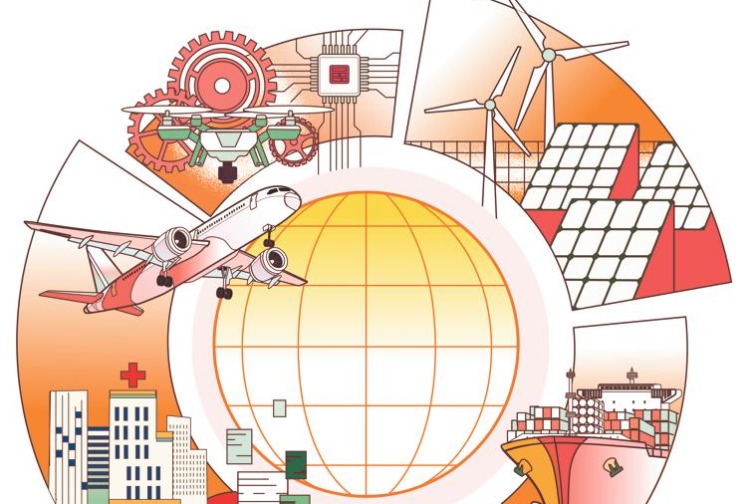No sinister hand, but nation needs to be prepared for biochemical risks


The novel coronavirus that emerged in Wuhan, capital of Hubei province, has caused nationwide alarm and prompted some people to claim it is a biochemical attack.
Although the source of the pathogen remains unclear, that does not mean the virus outbreak is a biochemical attack on China.
Conspiracy theories always have a market during a crisis. But without any evidence to support them, they don't hold water.
But the fact that the possibility is being debated reflects people's growing awareness of modern biological warfare and fear of it. Any government, including Chinese government, should be alert to such risks and ready to counter any such attack. For this, it is necessary for people to have a basic understanding of biochemical warfare and epidemics.
Biochemical warfare is when biochemical toxins and germs are used as weapons to kill or incapacitate and cause panic. The United States, the United Kingdom and the former Union Soviet Socialist Republics began research into biochemical weapons following Germany and Japan using biochemical weapons and programs during wartime.
Biochemical weapons have been severely condemned by the international community and gradually banned. For instance, the 1925 Geneva Protocol prohibits the use of chemical and biological weapons in war. The Biological Weapons Convention (BWC) was opened for signatures in 1972 and came into force in 1975 to ban the development, production and stockpiling of an entire category of weapons of mass destruction. Eight review conferences of the BWC were held until 2016 and the Ninth BWC Review Conference will be held in 2021.
However, the threat of biochemical warfare remains. Because biochemical weapons can cause mass casualties in a large area at a lower cost than conventional weapons, they have been taken as an approach for terrorism.
Because of their potential wide dissemination and impacts on public health and morale, as well as public stability, the high risk to national security of anthrax, botulism, plague, smallpox, tularemia, and viral hemorrhagic fevers such as Ebola and Lassa are listed Category A bioterrorism agents/diseases by the US Centers for Disease Control and Prevention. And people still lack effective measures to combat viruses such as Nipah, Zika, and the coronaviruses that caused severe acute respiratory syndrome and Middle East respiratory syndrome, and Ebola. Emerging infectious diseases such as Nipah virus are listed by the US CDC as Category C bioterrorism.
Therefore, improving the ability to prevent and cope with biochemical warfare is necessary for national security. Not only the government but the public should be alert to the risk of biological and chemical agents and diseases.
By establishing biological defense security in the new era, people can increase their awareness of precautions. Industries and fields that play a significant role in national security, national economy, people's livelihood and public health should be strictly managed. In addition, more importance should be attached to biotechnology to enhance the scientific and technological reserves of national defense and the capacity for coping with biological warfare.
The novel coronavirus has brought back the memory of the panic and hard fight against SARS in 2002-03. Great attention is being paid to the new coronavirus and the cure for it, raising groundless doubts of a biochemical attack will neither help control or reduce the public panic of the epidemic.
The Central Committee of the Communist Party of China and the State Council, China's Cabinet, have paid close attention to the coronavirus outbreak, launching a nationwide deployment and mobilization for disease control, virus research and supply security. With strong determination and concrete efforts, China will win the fight against the new virus again.
And the debate that has been sparked by the public health incident has highlighted the importance of being vigilant against any biochemical risks.
The author is a researcher at the National Defense University of the People's Liberation Army. The views don't necessarily represent those of China Daily.































